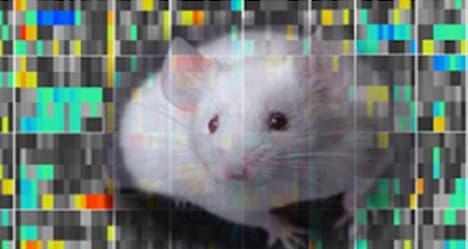ETH Zurich researchers near 'cure' for arthritis

Swiss researchers say they have taken an important step towards a cure for arthritis, successfully testing a prototype treatment in mice that may soon be trialled on humans.
The experimental drug "fully cured" arthritic mice who had hobbled on inflamed and swollen toes and paws, scientists at the Swiss Federal Institute of Technology in Zurich (ETHZ) said.
Rheumatoid arthritis is a condition that causes painful inflammation of joints, sometimes destroying cartilage and bone as it progresses.
The disease affects up to one percent of the world's population, according to ETHZ, but while various drugs are used to stop or slow the progression of the disease, there has until now been no known cure.
The Swiss researchers combined two components to create a fusion molecule they referred to as an "armed antibody."
One component is the body's own immune messenger molecule, interleukin 4 (IL-4), which had been shown in previous studies to protect against cartilage and bone damage in mice with arthritis.
The other component was an antibody to IL-4, which binds to a type of protein found only in inflamed tissue, ensuring that the substance works almost exclusively at the site of the disease.
"The concentration in the rest of the body is minimal, which reduces side-effects," pharmacist and lead author of the study Teresa Hemmerle said in a statement released on Wednesday.
The armed antibody alone only managed to slow the progression of arthritis in the affected mice.
But when it was combined with a cortisone-like anti-inflammatory drug already used to treat the disease in humans, called dexamethasone, the animals were cured, the scientists said.
"The typical signs of arthritis, such as swollen toes and paws, disappeared completely within a few days when both medications were administered at the same time," the statement said.
"In our mouse-model, this combined treatment creates a long-term cure," said Hemmerle, who recently completed her dissertation and has since been working for ETHZ spin-off Philochem, where the project is continuing.
The research group is planning to start testing the new drug in clinical trials on arthritis patients in the next year.
The study was published on Monday in a US journal, the Proceedings of the National Academy of Sciences (PNAS).
Comments
See Also
The experimental drug "fully cured" arthritic mice who had hobbled on inflamed and swollen toes and paws, scientists at the Swiss Federal Institute of Technology in Zurich (ETHZ) said.
Rheumatoid arthritis is a condition that causes painful inflammation of joints, sometimes destroying cartilage and bone as it progresses.
The disease affects up to one percent of the world's population, according to ETHZ, but while various drugs are used to stop or slow the progression of the disease, there has until now been no known cure.
The Swiss researchers combined two components to create a fusion molecule they referred to as an "armed antibody."
One component is the body's own immune messenger molecule, interleukin 4 (IL-4), which had been shown in previous studies to protect against cartilage and bone damage in mice with arthritis.
The other component was an antibody to IL-4, which binds to a type of protein found only in inflamed tissue, ensuring that the substance works almost exclusively at the site of the disease.
"The concentration in the rest of the body is minimal, which reduces side-effects," pharmacist and lead author of the study Teresa Hemmerle said in a statement released on Wednesday.
The armed antibody alone only managed to slow the progression of arthritis in the affected mice.
But when it was combined with a cortisone-like anti-inflammatory drug already used to treat the disease in humans, called dexamethasone, the animals were cured, the scientists said.
"The typical signs of arthritis, such as swollen toes and paws, disappeared completely within a few days when both medications were administered at the same time," the statement said.
"In our mouse-model, this combined treatment creates a long-term cure," said Hemmerle, who recently completed her dissertation and has since been working for ETHZ spin-off Philochem, where the project is continuing.
The research group is planning to start testing the new drug in clinical trials on arthritis patients in the next year.
The study was published on Monday in a US journal, the Proceedings of the National Academy of Sciences (PNAS).
Join the conversation in our comments section below. Share your own views and experience and if you have a question or suggestion for our journalists then email us at [email protected].
Please keep comments civil, constructive and on topic – and make sure to read our terms of use before getting involved.
Please log in here to leave a comment.